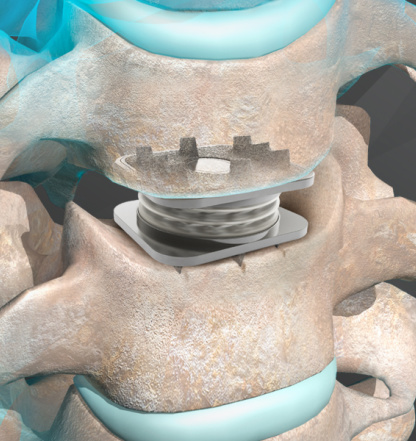The term “failed back surgery syndrome” is usually used as a catch-all to describe the pain and related symptoms caused by an unsuccessful spine surgery. While the first thing most people think of may be a lower back surgery,…
The term “failed back surgery syndrome” is usually used as a catch-all to describe the pain and related symptoms caused by an unsuccessful spine surgery. While the first thing most people think of may be a lower back surgery, this condition can also refer to neck surgery on the upper spine.
Anyone dealing with a failed neck surgery knows that it is every bit as difficult to deal with as a failed back surgery. One of the first questions many people dealing with failed neck surgery syndrome and related neck pain ask is whether revision surgeries will be necessary. The answer to this question varies on a case-by-case basis, which is why it is important to act promptly and get personalized attention.
The following guide can help you get a better understanding of the treatments available for failed neck surgery syndrome and the steps many patients take before undergoing revision surgeries. The caring team at Spine Center Atlanta is here to help and we welcome any questions you have. Don’t hesitate to reach out.
Make Sure You Get a Thorough Evaluation and Positive Diagnosis
Like any surgery, there will always be some postoperative pain after neck surgery and it can be difficult to distinguish normal neck pain from a potential complication. After the procedure, the postsurgical team should give you detailed instructions for recovery. This should include steps to help you reduce complications as well as how to recognize potential warning signs.
Any patient who thinks they are dealing with failed neck surgery syndrome should receive a thorough evaluation as soon as possible to diagnose the underlying cause of neck pain and other symptoms. Causes of failed neck surgery range from misdiagnosis to infection to surgical error and the source need to be identified in order to treat it effectively.
Your doctor may take the following diagnostic steps to diagnose your postsurgical neck pain:
- Questions about your symptoms and activity level
- Review basic vitals, including heart rate and temperature
- Perform a physical examination of the incision and surrounding areas
- Order new diagnostic tests, including new imagery such as an MRI
In some cases, the failed neck surgery may constitute a medical emergency that requires immediate revision surgery. In many other situations, patients will pursue nonsurgical therapies first.
Fully Pursue Conservative Treatments
Nonsurgical conservative treatments can be highly effective in relieving neck pain and failed neck surgery syndrome. Even if you attempted some of these treatments before undergoing surgery, it can be beneficial to try them again. Revision surgery is very often a last resort, and it is crucial to first attempt less intensive measures.
Therapeutic options for neck pain after an unsuccessful spine surgery include:
- Taking anti-inflammatory and/or pain medication
- Using a heating pad in alternation with an ice pack or other cold source
- Undergoing physical therapy and rehabilitation to strengthen the neck and improve mobility
- Attempting acupuncture from a trained and licensed professional
- Receiving massage therapy to relax tense muscles and break up painful bundles of damaged tissue
These and other doctor-recommended therapies help a large number of patients successfully manage failed neck surgery syndrome on a long-term basis without the need for surgery.
Focus on Mental Health and Spine Health
Another step that may be easy to overlook is to integrate your physical and mental health into your treatment plan. Factors like nutrition, staying active, and practicing good posture and mechanics can all have a positive impact on your spine health that can be a key puzzle piece in overcoming neck pain caused by an unsuccessful surgery.
In a similar way, focusing on your mental health can also have a surprising impact on your ability to manage pain. This is especially true for a failed neck surgery, which can so often be a source of emotional distress. Taking steps like undergoing cognitive behavioral therapy and practicing mindfulness meditation can help you learn how to recognize and minimize painful sensations.
Find a Surgeon You Can Trust
If you have attempted conservative failed neck surgery syndrome for weeks, months or longer and neck pain continues to seriously affect your quality of life, a revision or follow-up spine surgery can become a serious consideration.
Undergoing any type of spine surgery can cause an understandable level of stress and anxiety, and this is even more true for revision surgeries where patients are dealing with the negative effects of a previous surgery. Finding an experienced surgeon who will take the time to explain your condition and treatment options can go a long way toward calming your nerves.
When speaking to any prospective surgeon, don’t be afraid to ask lots of questions and trust your instincts.
When You’re Ready, Reach Out to Spine Center Atlanta
From physical therapy and acupuncture to revision surgeries, the highly skilled and experienced team at Spine Center Atlanta are experts at helping patients overcome failed neck surgery syndrome. We will work closely with you to design an effective treatment plan that is personalized to your unique diagnosis and lifestyle.
A failed neck surgery doesn’t have to take over your life. Contact our caring team to learn more about your treatment options and our world-class facilities.






























